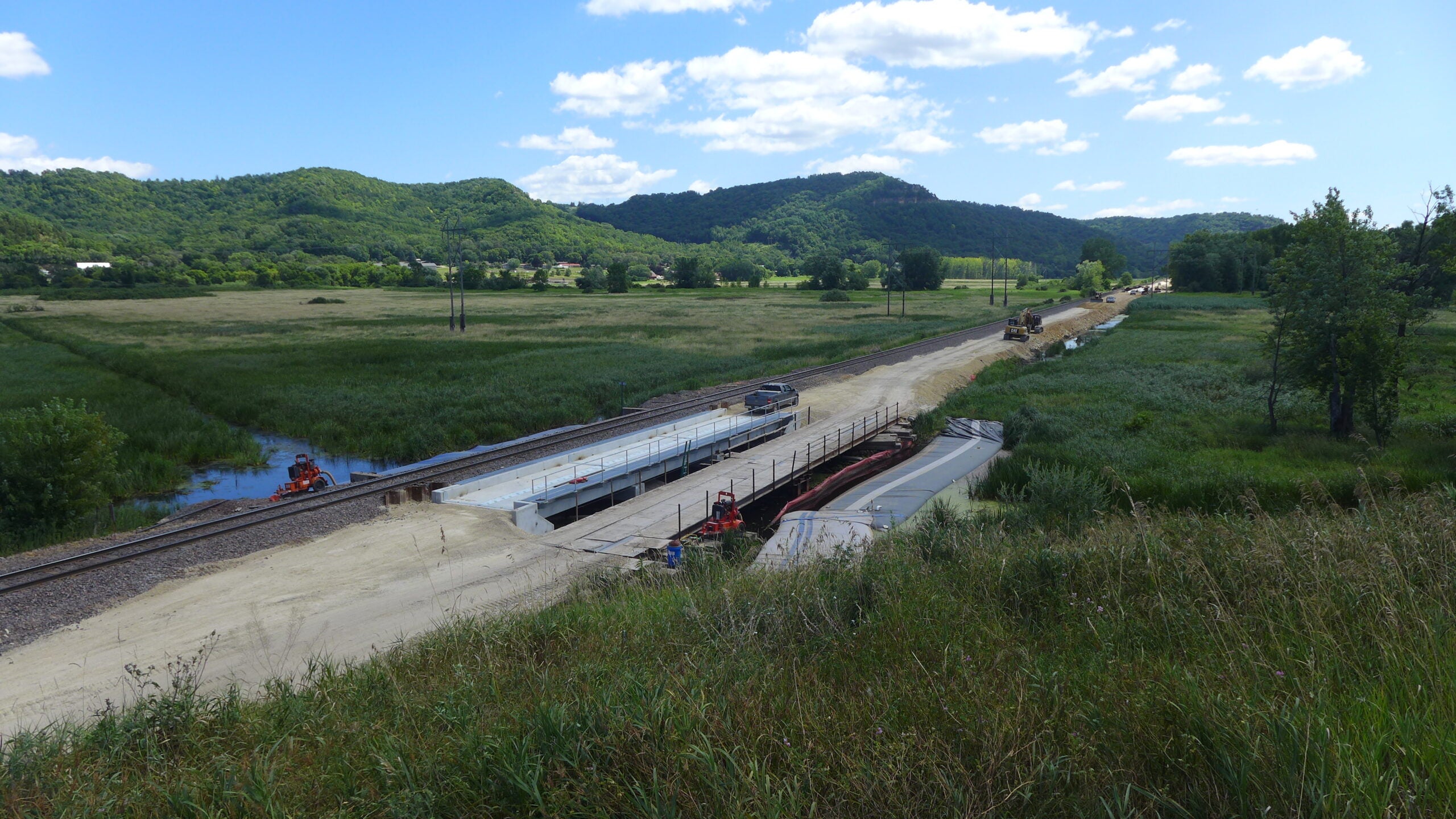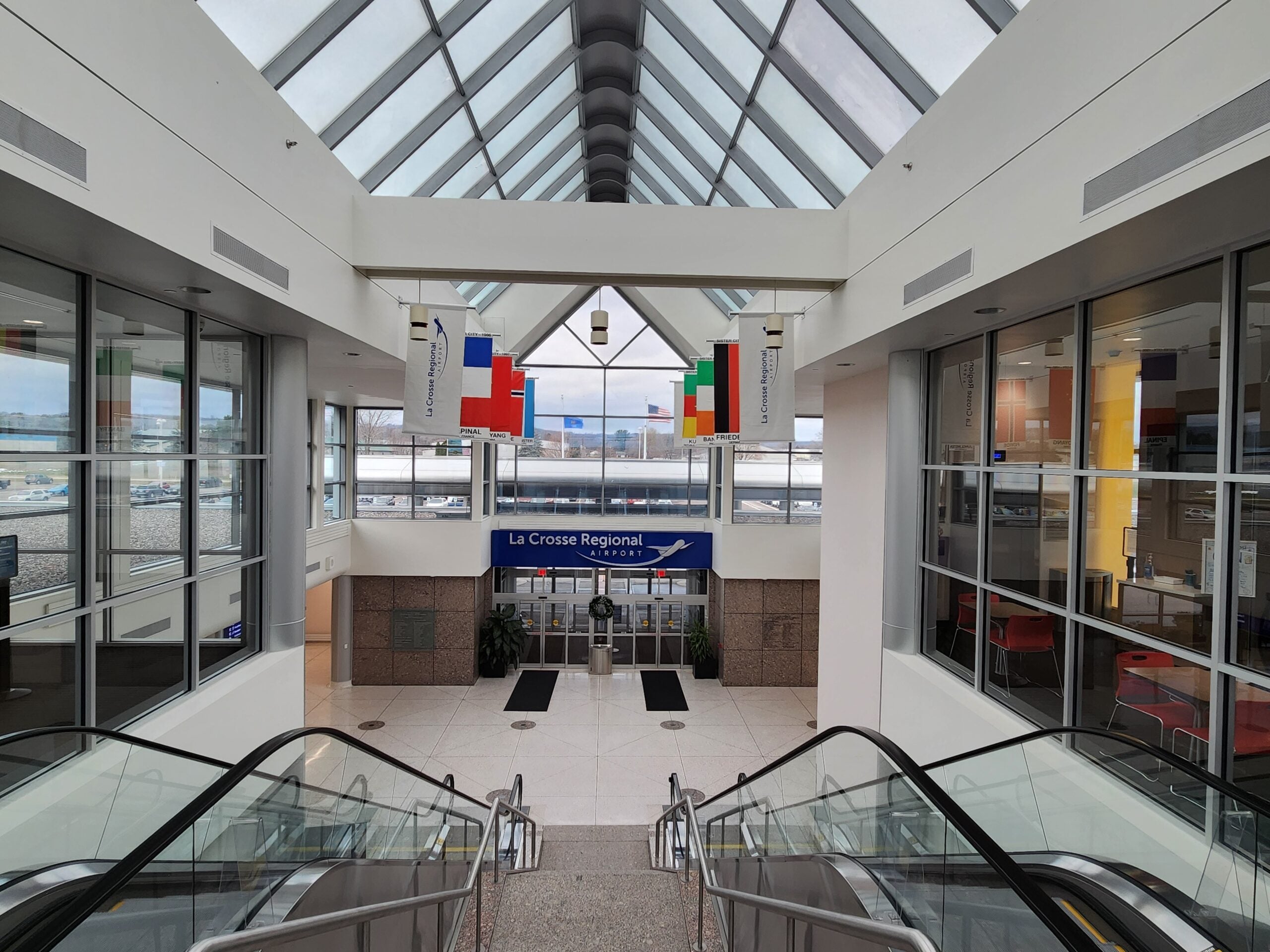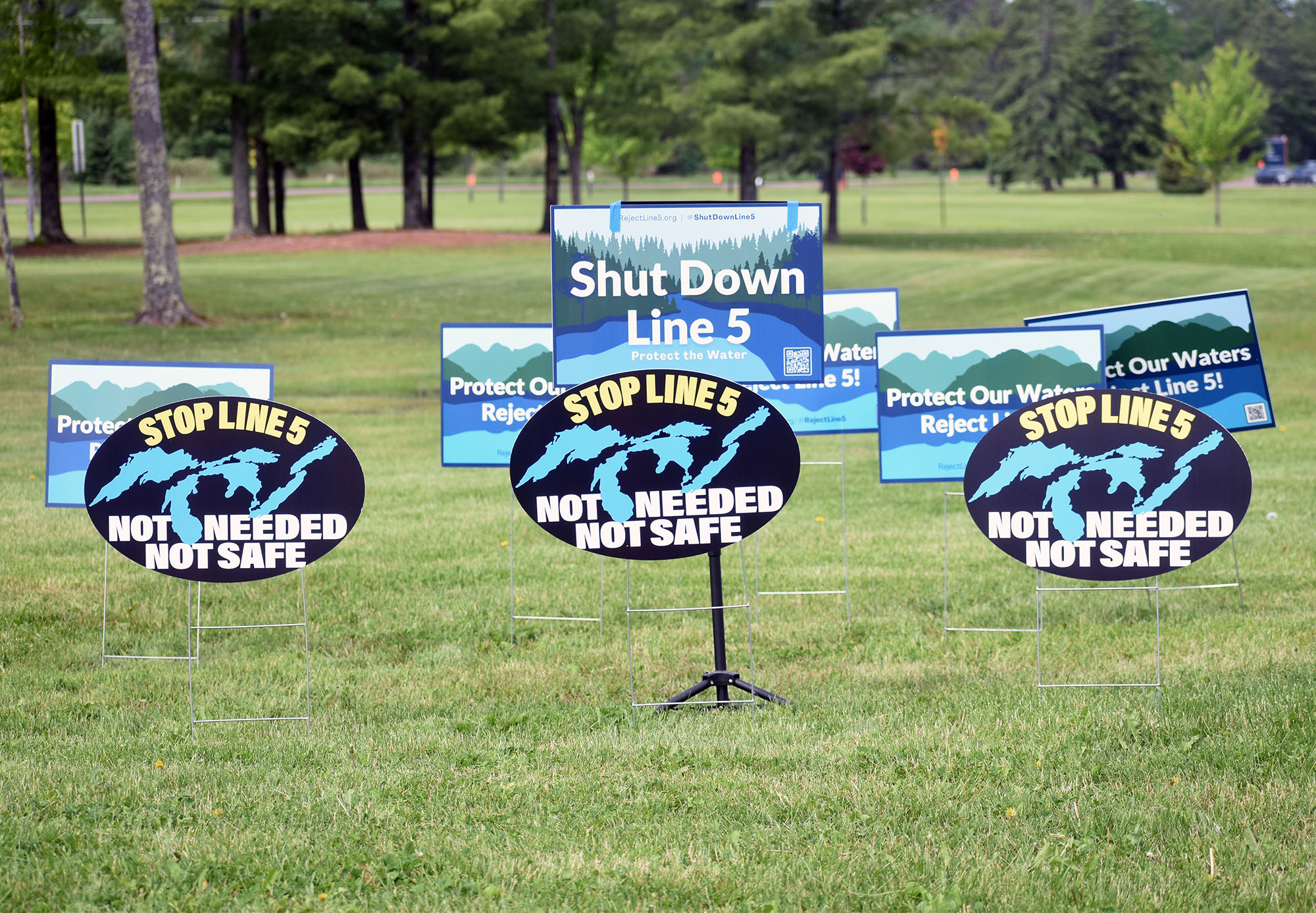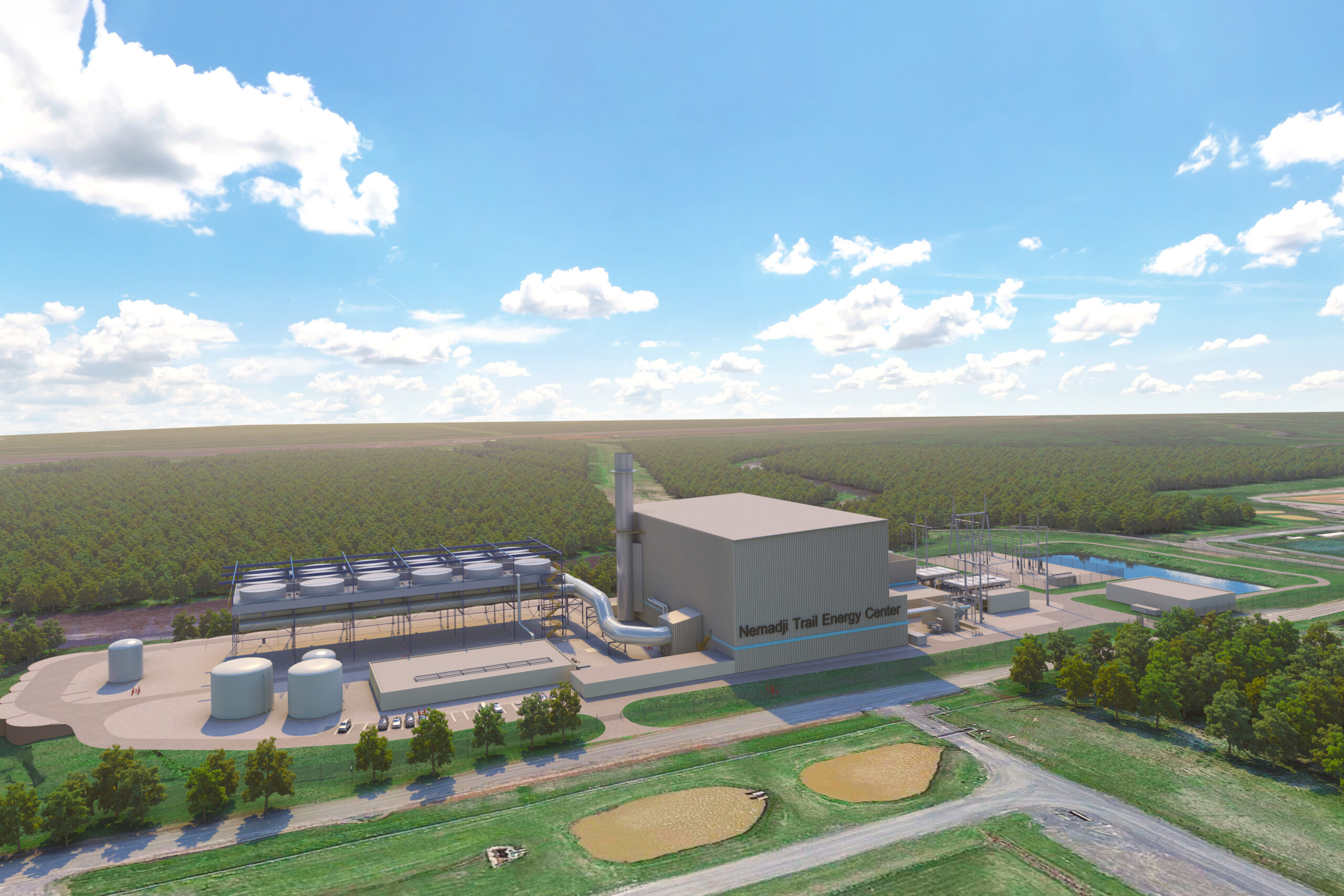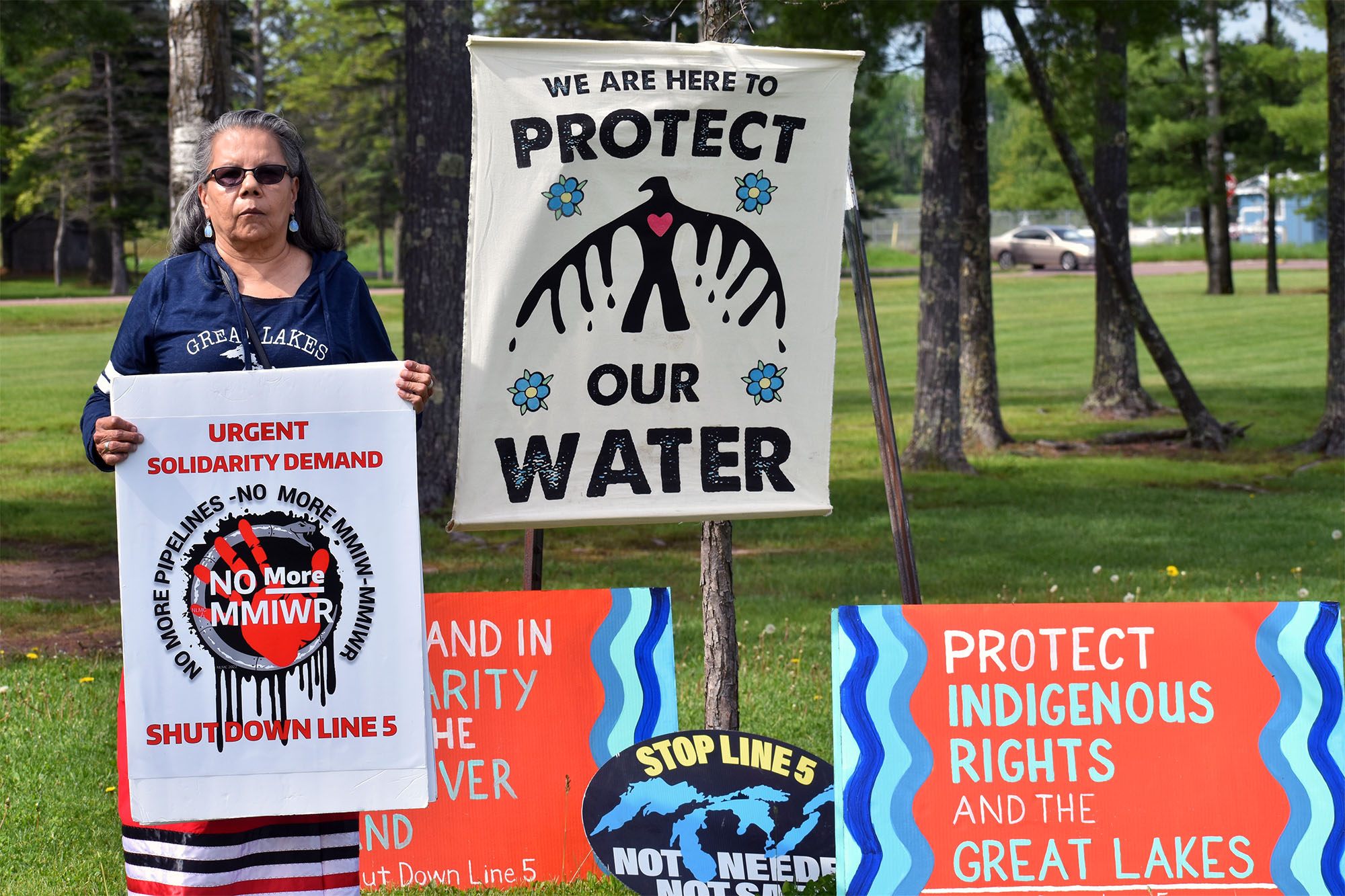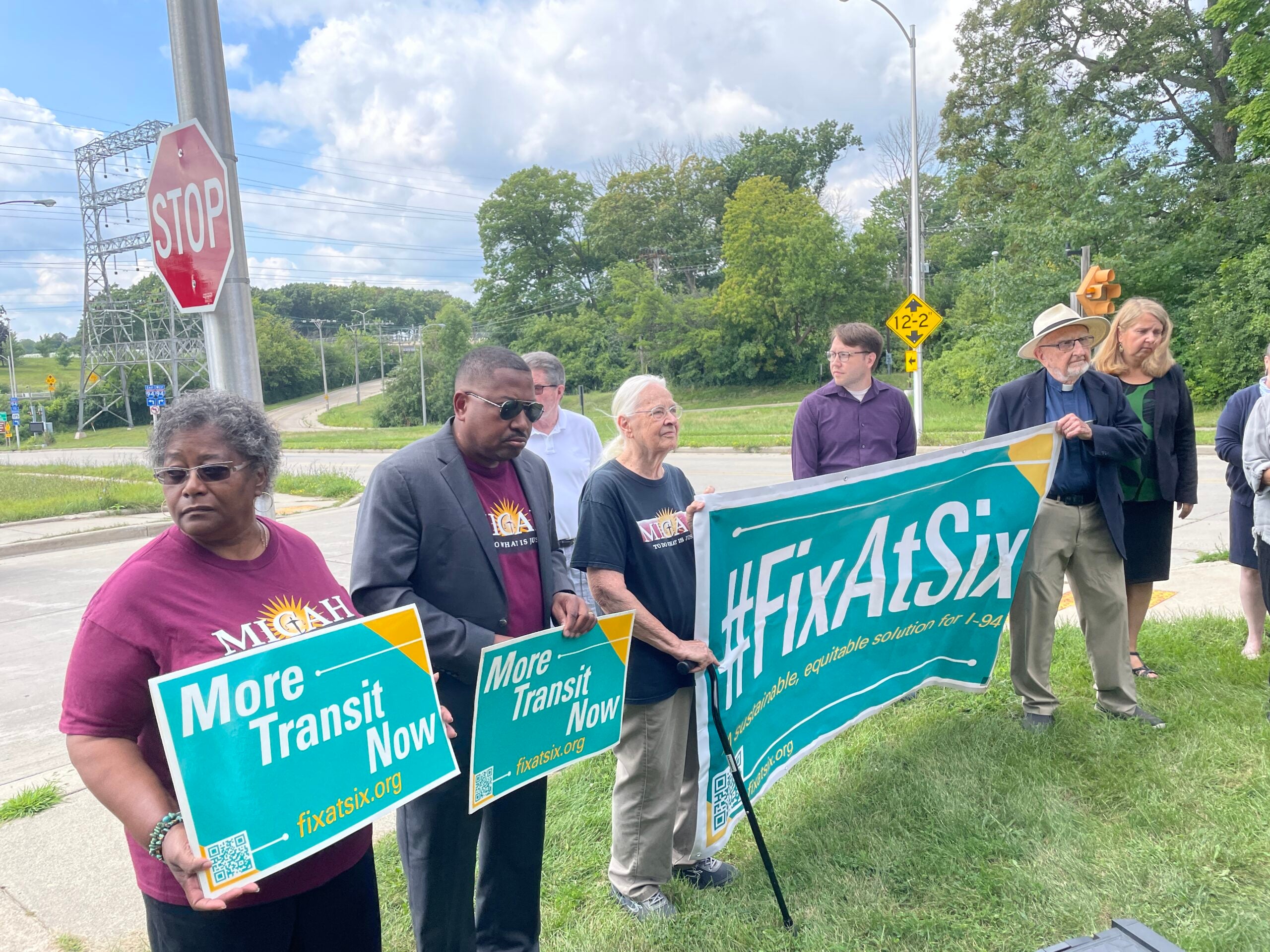A La Crosse County judge ruled Monday that construction can continue on a controversial BNSF Railway expansion project.
However, Circuit Judge Scott Horne also ordered a halt to all rail traffic on the line until a lawsuit challenging its construction is resolved.
BNSF is adding a second track through La Crosse to reduce a bottleneck in rail traffic and to increase its capacity. Members of Citizens Acting for Rail Safety, or CARS, have been trying to halt the construction of the rail line, which goes through the La Crosse River Marsh, mostly due to environmental concerns. Members filed a lawsuit against the Wisconsin Department of Natural Resources in March, challenging the agency’s rules and arguing that a more comprehensive environmental impact study of the project is needed.
Stay informed on the latest news
Sign up for WPR’s email newsletter.
Attorneys representing the CARS members had requested that work on the line be temporarily halted until the lawsuit was resolved. Horne denied that request, saying the project was causing no “irreparable” harm, and that construction is almost complete. He nevertheless ordered that rail traffic on the second track stop until he’s made a decision on the DNR challenge.
The DNR issued a permit to BNSF that allows construction in the wetlands, but CARS members argue the DNR didn’t do an adequate environmental analysis of secondary and cumulative impacts. The group is also challenging new DNR rules on environmental analyses that they argue don’t comply with the Wisconsin Environmental Policy Act.
Midwest Environmental Advocates attorney Sarah Williams is representing members of CARS. She said halting traffic ensures that they get their day in court and that the judge will consider their arguments, even if construction is complete.
“Until we get an adequate environmental analysis, there won’t be more trains running that on second track that present a risk of spills, derailments, and all those impacts that we raised in public comments and before this court,” said Williams.
A BNSF spokeswoman said in an email that the company would like to get trains moving through the area as soon as possible and that it’s evaluating its options moving forward.
The project is scheduled to be complete in early September, but the next hearing is not until Sept. 28. BNSF’s lawyers requested an earlier hearing so it can get trains moving on the second track sooner. Horne reminded the lawyers that the DNR and state Department of Justice asked that the two issues be addressed separately in the courts, which have played a role in the court scheduling delay.
CARS member Ralph Knudson said he hopes the case sets a precedent for ongoing and future rail expansion projects in the state.
“If the court decides that the process that was used to get this project through cut some corners, wasn’t ideal, wasn’t consistent with the way the law is set up in the way the DNR should function, at the very least it should then force the DNR to be more compliant, more open with the public, and do more environmental assessments on future projects,” said Knudson.
Wisconsin Public Radio, © Copyright 2025, Board of Regents of the University of Wisconsin System and Wisconsin Educational Communications Board.

